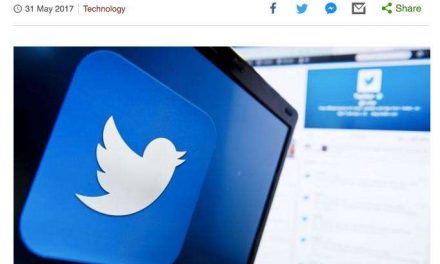I am on a big search – and it will be a long and protracted search – for a new meaning. Not of life (well, that as well, but that’ll last even longer), but of what it means to watch television. Yes, I have discovered doubt: I no longer trust my old instincts. And so I will spend 2015 – this is at least one of my new year’s resolutions – on thinking through what it means to watch television today.
My doubt finally hit after I was confronted with more and more evidence at the excellent 2015 MeCCSA conference.[1] The evidence that different papers presented me with is that audiences are no longer watching television. This is also confirmed by my students. They too, in proud defiance, claim that they no longer watch television. At MeCCSA, Ksenia Malykh in her paper entitled ‘Personalisation of Television Technologies: Multiple Screens, Online TV Services and Family Everyday Life’ in particular highlighted how her family audiences that she is investigating for her PhD watched their television largely on demand. We had quite an animated debate afterwards, in which I might have become too defensive, and I apologise for that. But my animation just highlighted how much she was getting to me: in her paper lies some of the root causes of my dwindling confidence.
My old persuasion is the following: we are all still watching an awful lot of television in the very traditional ways – live, and usually while doing something else. So when I ask my students: how much television do you watch, they usually say, perhaps an hour a week. When I then ask them how many hours a day do they have the television on while studying, cooking, eating, etc., they say about 6 hours a day. In other words, they use the television as my mother’s generation used the radio. When I look across at the families I know (and I know quite a few at the moment, thanks to my own 2-year-old), there seem to be similar patterns emerging. When I go around to other people’s houses, I often find the television is on – but they are not necessarily sitting down to watch. When they sit down to watch, it’s often something from Netflix/IPlayer/itvplayer/4oD. And importantly, that’s what my students class as ‘watching television’.
What this indicates, of course, is a very old problem that has been discussed and theorised widely in the literature. John Ellis’s theory of television demanding a glance rather than a gaze is of course still central to our subject field, and received further endorsement by John Caughie’s article on telephilia and distraction. Both, however, have also been criticised, with authors emphasising their own experience of enjoyment (Karen Lury) or by working through, painstakingly, the different understandings and approaches by a number of scholars in order to critique them (Matt Hills). But as Matt Hills so beautifully highlights, these contributions are often based on the personal experiences of academics skilled in particular languages and understandings. They do not capture the perceptions of other audiences – the average audience, the audience that Malykh gives us an insight to.
It is for this reason that I for once, and controversially, want to brush the whole glance/ televisual gaze theory to the side. Both of them are right: we watch television distractedly, with a glance, and sometimes we watch television in the same engaged and ‘visceral’ (Hills) way that Caughie seems to attribute only to the cinema. But importantly, audiences only recognise the latter as ‘watching television’. The question that arises from this is: what do we do with this? Do we discount everything else? Ofcom clearly don’t as their own papers at MeCCSA – and their annual reports indicate; nor do Nielsen or BARB. But what about us? What shall we do?
For me this is a surprisingly complex and painful question. Whatever our decision is, it has implications. If we follow the audience’s perception, we need to carefully negotiate this in our audience analyses, whilst considering the implications for our textual and production research. For example, we might have to reconsider the dominant role we give to quality drama in our textual analyses, since, although attracting a number of watching viewers, they do not attract as many as Strictly Come Dancing (BBC, since 2004) or Coronation Street (ITV, since 1960). Similarly, if we ignore the audience’s perception – well, we ignore the audience.
So, 2015 is the year of the big search for a new meaning for me: what does it mean to study television in an era in which watching television as a term has become defined y a concentrated form of engagement? Your comments and thoughts are, as always, very welcome.
Elke Weissmann is Reader in Film and Television at Edge Hill University. She is currently considering changing this to Reader in Television and Film, however. Her books include Transnational Television Drama (Palgrave) and the edited collection Renewing Feminisms (I.B.Tauris) with Helen Thornham. She is vice-chair of the ECREA TV Studies Section and sits on the board of editors for Critical Studies in Television. She migrated to the UK in 2002 after realising that German television was as bad as she remembered.
Footnotes:
[1] If James Leggott, one of the organisers, is right and we are remembering conferences on the strengths of their catering, let this one be remembered for the cakes. They were amazing. If, however, we also remember them for variety, insight and academic debate, then this one will be remembered for quite a few other things: Natalie Fenton introducing the keynote speaker, Paulo Gerbaudo, who presented on the internet and populist (political) movements, while she herself has written on the fallacy of cat videos and the de-democratisation of audiences; Karen Boyle telling us to find a friend to tell us to stop (working) and also recognise that the discourse of ‘I have been so lucky in “my beautiful career”’, even when there’s truth to it, is actually deeply feeding into a culture of exploitation and overwork in academia; and lots and lots of other interesting papers.






